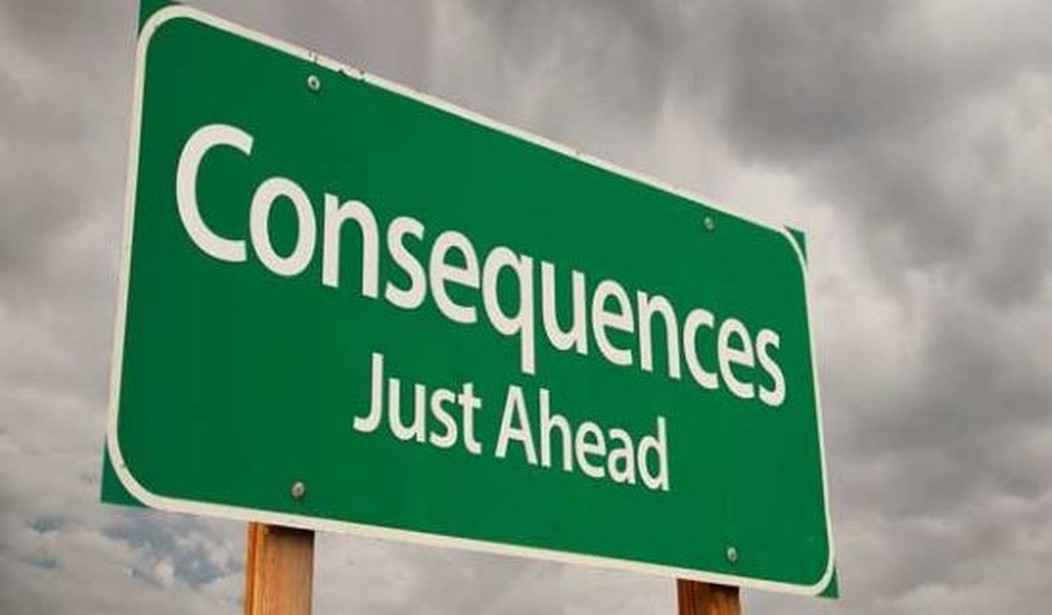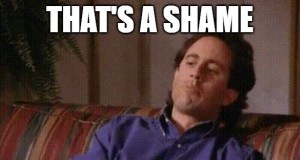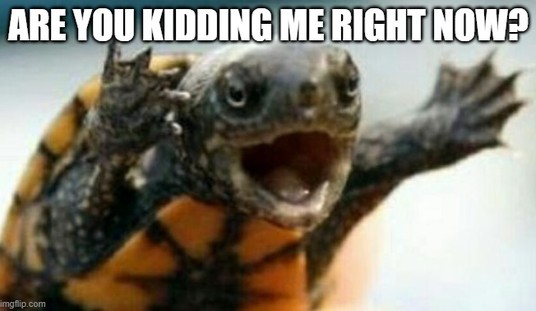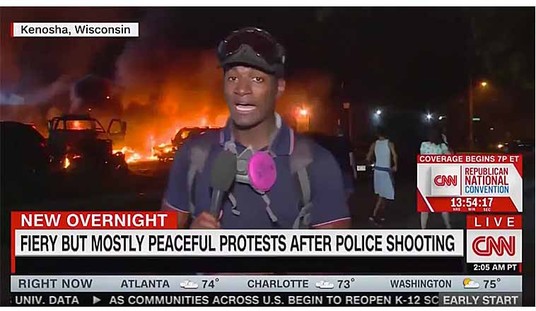Regular readers of Twitchy know about how students at Stanford shouted down conservative Federal Judge Kyle Duncan and how students at Yale Law School did something similar to a panel on civil liberties (because irony is dead).
(Full disclosure: this author is an alumnus of Yale Law School and is embarrassed for these chuckleheads.)
Now it seems that the chickens might be coming home to roost in Texas.
In order to be licensed to practice law, Texas (like most states) requires a person to have good character—which in our experience is mainly a matter of not having anything in one’s record that shows poor character. And the State Bar of Texas has some bad news for disruptive protesters:
NEW: The state of Texas is updating its bar application to include questions about whether applicants have engaged in "incivility and violations of school policies.”
The move is a direct response to the Stanford shout down.🧵https://t.co/35TJGZFJkL
— Aaron Sibarium (@aaronsibarium) April 14, 2023
Sen. Ted Cruz (R., Texas) wrote to the bar in March suggesting the change, arguing that Stanford Law School graduates should "be made to answer, in writing, whether they participated in the shameful harassment" of Fifth Circuit appellate judge Kyle Duncan, who was subjected to…
— Aaron Sibarium (@aaronsibarium) April 14, 2023
The text of the tweet cuts off but it says ‘ … who was subjected to vulgar heckling when he attempted to deliver prepared remarks.’
Kudos to Mr. Cruz for taking action.
The bar responded in early April, indicating that it planned to ask all applicants "directly" about their involvement in disruptive protests.
— Aaron Sibarium (@aaronsibarium) April 14, 2023
Texas's board of bar examiners made the change after concluding that schools like Stanford—which did not discipline a single heckler—cannot be trusted to attest to an applicant's character.
— Aaron Sibarium (@aaronsibarium) April 14, 2023
The state "has historically relied on law schools to report disciplinary matters that should be considered in determining an applicant's character and fitness for admission to the Texas bar," Nathan Hecht, the chief justice of the Texas Supreme Court, wrote on behalf of the bar…
— Aaron Sibarium (@aaronsibarium) April 14, 2023
Again, here’s the remaining text: ‘ … Nathan Hecht, the chief justice of the Texas Supreme Court, wrote on behalf of the bar examiners, who evaluate applications to the bar. ‘School reactions to recent violations of free-speech policies suggest that reliance is not justified.”
In other words, since Stanford wasn’t enforcing their own rules, the Bar needed to take up the slack.
All lawyers must pass a "character and fitness" check that screens for values like honesty and civility. If those checks become more focused on disruptive conduct, they could make law students think twice before engaging in that conduct.
— Aaron Sibarium (@aaronsibarium) April 14, 2023
"Texas lawyers are expected to adhere to the Texas Lawyer's Creed," Hecht wrote, "promising to 'treat counsel, opposing parties, the Court, and members of the Court staff with courtesy and civility.' The admission process should examine whether applicants can be expected to…
— Aaron Sibarium (@aaronsibarium) April 14, 2023
The last sentence says ‘The admission process should examine whether applicants can be expected to fulfill this promise [of courtesy and civility].’
Stanford students told Duncan, among other things, "We hope your daughters get raped!" The new bar questions are the latest effort to impose consequences in Stanford's stead.
— Aaron Sibarium (@aaronsibarium) April 14, 2023
What do you think the chances are that the students who said this call themselves feminists?
"I salute Chief Justice Hecht for his efforts to uphold the integrity of the Texas Bar, which is second to none," Cruz told the Free Beacon. "And by applying rigorous standards for new lawyers, it will remain that way. Other state bar associations ought to follow suit."
— Aaron Sibarium (@aaronsibarium) April 14, 2023
Cruz and Hecht aren't the only ones looking to leverage the bar against disruptors. John Banzhaf, a distinguished public interest lawyer with a long history of liberal activism, said last month that he plans to file bar complaints against the students who disrupted Duncan, some…
— Aaron Sibarium (@aaronsibarium) April 14, 2023
To fill in the cut off text: ‘ … he plans to file bar complaints against the students who disrupted Duncan, some of whom, such as Denni Arnold, have been identified.’
Good for him. Seriously.
It's just one wave in the tsunami of backlash against Stanford, from both elected officials and Duncan's fellow judges. House Republicans are now pressing the American Bar Association to investigate the law school, saying it is not in compliance with accreditation standards that…
— Aaron Sibarium (@aaronsibarium) April 14, 2023
To fill in the cut off text: ‘ … not in compliance with accreditation standards that require it to promote free speech.’
And two circuit court judges, James Ho and Elizabeth Branch, announced this month that they will no longer hire clerks from Stanford Law School, broadening the boycott they began of Yale last year. https://t.co/NQCJj40Oc5
— Aaron Sibarium (@aaronsibarium) April 14, 2023
"Rules aren't rules without consequences," Ho said in a speech. "And students who practice intolerance don't belong in the legal profession." https://t.co/8qE7bNMV5v
— Aaron Sibarium (@aaronsibarium) April 14, 2023
This got some praise:
well done, texas https://t.co/UmPUXtYFrC
— Marc J. Randazza 🇺🇸 🇮🇹 🇧🇷 🇮🇸 🇸🇪 (@marcorandazza) April 14, 2023
Mr. Randazza is a respected First Amendment Lawyer.
Possibly a fair point.
If you engage in unprofessional conduct during your college years, you will probably engage in unprofessional conduct afterwards.
— The Knave (@TheKnave2) April 14, 2023
"Actions have consequences"
— Prang the Deplorable (@wizardprang) April 14, 2023
Entirely reasonable. The behavior they exhibited violates the ethics required of lawyers, as I understand it.
— yubidad (@yubidad) April 14, 2023
Good. The heckler's veto needs to be discouraged in civil society. I especially do not want to be represented by a lawyer who believes that such behavior is in any way acceptable.
— Carl James Grindley (@CJGrindley) April 14, 2023
Outstanding. Actions have consequences. Hit the wokesters where it hurts. https://t.co/I3NjFBcW5E
— Varad Mehta (@varadmehta) April 14, 2023
As a Texas lawyer who went through their background check process in order to sit for the bar, I’m not opposed to this. https://t.co/JbeUZdXwcS
— David Kervin (@DavidKervin) April 14, 2023
Can’t wait to hear the progressive law profs at @UTexasLaw cry about this. https://t.co/cLzHWHwahh
— Red Dot in a Blue Dot in a Red State (@reddotaustintx) April 14, 2023
This.
I may move to Texas https://t.co/B1rMNULrjw
— Teresa McEntire (@dragonswings22) April 14, 2023
We’ve lived there. As long as you have air conditioning, it’s a pretty nice state.
Of course, not everyone is pleased:
And of course FIRE is going to sue them if they do right? Because this represents a direct infringement on the first amendment, right? and also a bill of attainder? Right?
— matthew ⚑ (@goldstar9711) April 14, 2023
Free speech doesn’t mean that you can scream all the time and let no one else get a word in edgewise. The First Amendment does allow for neutral time, place and manner restrictions, including shutting everyone up so a speaker can actually speak, especially in classrooms and in court. And the State Bar of Texas can reasonably ask that if a person can’t let other people speak at school, will that person be equally disruptive in court?
(And the Bill of Attainder issue is too silly to bother with.)
Another person thought they had the perfect solution: lie!
So everyone puts 'no', easy
— G (@Opa_opa_yall) April 14, 2023
Ironically, maybe the Bar is hoping for a few liars. This is pure speculation, but it is probably easier to justify excluding a person from the legal profession for lying about their incivility than it is for the incivility itself. So, maybe this is designed to be a proverbial ‘perjury trap’.
Aaron (Sibarium) defended Texas’ argument:
I’m seeing a lot of objections to the “incivility” standard on the grounds that “civility” is a vague concept. True, but the character and fitness review already appeals to vague values like “honesty.” And “violations of school policies” is pretty clear. https://t.co/WfSB6TZNA8
— Aaron Sibarium (@aaronsibarium) April 14, 2023
And the principle of civility is enforced in other contexts without any difficulty. For instance, the Illinois Supreme Court Commission on Professionalism’s official twitter account posted this story called: ‘The True Cost of Incivility in the Legal Profession’.
"While some lawyers view incivility as a relatively minor transgression, a recent New York Supreme Court decision shows incivility can be costly." ➡ Resource by @ErikaHarold shared from our blog. #TFIN23 https://t.co/wHSgwRDkBA
— 2Civility (@2CivilityOrg) April 20, 2023
That article discussed a New York case where a deposition was constantly interrupted by childish insults by opposing lawyers, leading a judge to sanction the lawyers by forcing them to pay over $68,000. They were also ‘mandated to attend a [legal class] on civility and provide the … instructor with a copy of the deposition transcript at issue so the instructor could use it in his seminar ‘as an example of uncivil sanctionable behavior.”
Ouch. To be a fly on the wall in that class …
And if we can go off on a rant, here … law schools are not serving their students well if they don’t constantly expose them to other points of view and if they don’t ensure that they know how to express disagreement with those persons logically and civilly. In court, you can’t just shout ‘that person is a transphobe!’ and expect to win most cases. And even if a lawyer doesn’t practice in litigation, your words and behavior is likely to be scrutinized and even the subject of legal action involving people who think in ways very different from your own. A good lawyer seeks to understand how other people think, how their arguments work, and (if necessary) to tear those arguments apart, civilly, using that knowledge. A lawyer educated in a cocoon, a lawyer who can’t even cope with disagreement, is a bad lawyer.
(Gets off soapbox.)
Of course, one person was confused about the whole issue:
Me, first reading this tweet: "What's that got to do with running a bar?"
— pantsdailyon (@pantsdailyon) April 14, 2023
Occupational hazard, we suppose.

























Join the conversation as a VIP Member